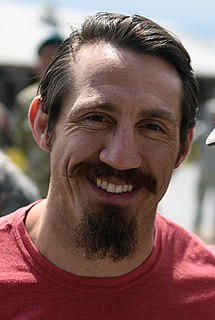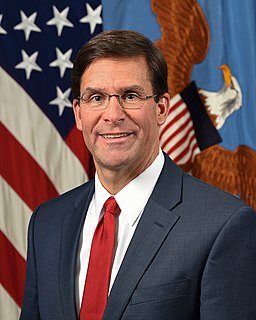A Quote by Crispin Blunt
We are in this Alice in Wonderland world where parliament has approved a motion saying: 'notes the government will not deploy U.K. troops in ground combat operations.' It doesn't say: 'brackets not special forces.' But the convention is that it is 'brackets not special forces.'
Related Quotes
The authorization I propose would provide the flexibility to conduct ground combat operations in other more limited circumstances, such as rescue operations involving U.S. or coalition personnel or the use of special operations forces to take military action against ISIL leadership, it would also authorize the use of U.S. forces in situations where ground combat operations are not expected or intended, such as intelligence collection and sharing, missions to enable kinetic strikes or the provision of operational planning and other forms of advice and assistance to partner forces.
Saudi Arabia has said that if the US-led coalition against Daesh is prepared to engage in ground operations, we will be prepared to participate with special forces. The Russians say their objective is to defeat Daesh, too. If the deployment of ground troops helps in the fight against Daesh, why is that World War III?
I emphasize the distinction between brackets and no brackets because it will affect your reading experience, if you will allow it. Brackets are exciting. Even though you are approaching Sappho in translation, that is no reason you should miss the drama of trying to read a papyrus torn in half or riddled with holes or smaller than a postage stamp--brackets imply a free space of imaginal adventure.
Our job is to provide coalition the military equipment that they need; the air support they need; special forces when appropriate. But at the end of the day for a dozen different reasons, not the least of which is that ISIS would like American combat troops on the ground so they could reach out to the Muslim world and say, "Look, we're taking on those terrible Americans."
The most important thing is to build local capacity, meaning train local forces, build the local defense institutions, defense ministries, command and control, because, in the long run, it is expected that local forces are stabilizing their own country, fighting terrorism themselves, instead of NATO deploying a large number of combat troops in combat operations.
The Obama administration is dedicated to increasing terrorism. In fact, he is doing it all over the world. Obama is running the biggest terrorist operation that exists, maybe in history. The drone assassination campaigns - which are just part of the special forces operations and so on - all of these operations are terror operations.
The Obama presidency has seen the U.S. military's elite tactical forces increasingly used in an attempt to achieve strategic goals. But with Special Operations missions kept under tight wraps, Americans have little understanding of where their troops are deployed, what exactly they are doing, or what the consequences might be down the road.































